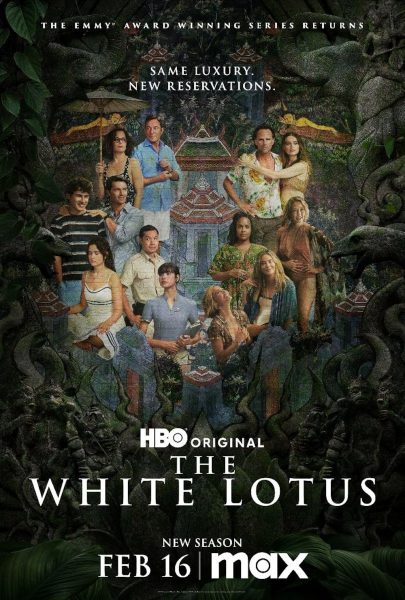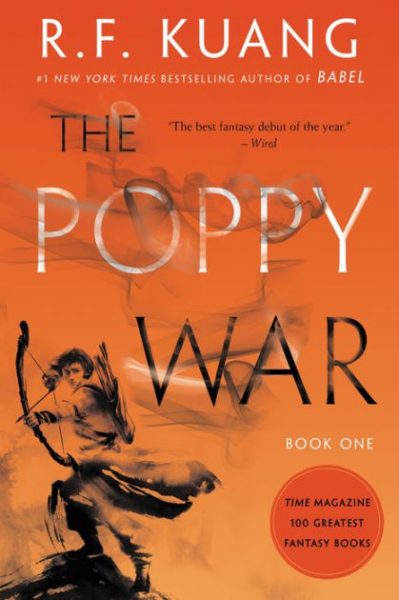“The Secret Lies with Charlotte”: Why the World Needs National Treasure 3
15 years ago the stars aligned, world peace was achieved, and Mark Wahlberg never stopped producing music. An event that can only be rivaled with the President’s speech from 1996’s Independence Day. It was an aspiration to the film industry. An aspiration that is more crucial now than ever. Why? Because on Nov. 19, 2004, Disney’s National Treasure was released into theaters.
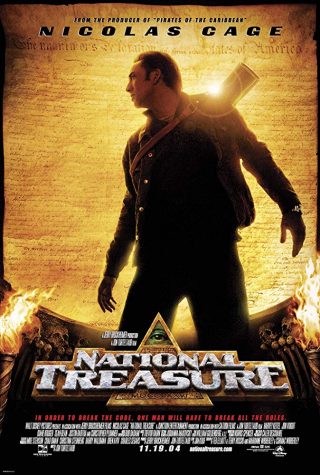
Nowadays, Hollywood is filled with over budgeted, terribly produced films designed for nothing more than financial and political gain. For example Star Wars: The Force Awakens, Jurassic World: Fallen Kingdom, and Transformers: The Last Knight. These films not only fit into the categories I previously mentioned, but they all seem to think they’re the most important films in existence.
So, how do we fix this problem? What needs to be done in order to fix the over bloated film market? The answer, was the basis 243 years ago for our very own Declaration of Independence. Explained beautifully by Nicolas Cage’s character, Benjamin Gates, “…If there’s something wrong, those that have the ability to take action, have the responsibility to take action.” Which is why the world needs it. The world needs National Treasure 3.
Much like the Freemasons, National Treasure is a part of a secret organization, except in this case, the organization is one made up of films that are self aware. Within the first 40 minutes, Gates steals the Declaration of Independence. Movies do not do this! An action scene as big as this would normally be the climax of a film, instead of the inciting incident.
Few films have even attempted this structure, a contemporary to National Treasure would be Avengers: Endgame, when the main villain is killed within first 15 minutes of the film, which went on to become the highest grossing film of all time.
To put this rarity into greater perspective, imagine if in The Empire Strikes Back, the inciting incident was Darth Vader telling Luke he’s his father. How does National Treasure get away with this? Simple, to quote the clue felt behind by the Founding Fathers that drove Gate’s passion, “The secret lies with Charlotte.”
Several elements make National Treasure memorable, and the plot is a major factor. Gates steals the Declaration because there’s an invisible map on the back of it, that leads to Freemason treasure. In it’s sequel, Book of Secrets, Gates must prove his ancestor wasn’t involved with the assassination of Abraham Lincoln. To do this, he (obviously) kidnaps the President of the United States, which leads him to discover El Dorado underneath Mount Rushmore. Please go back and read that sentence out loud because you’ll sound insane. Don’t worry, with context this makes perfect sense.
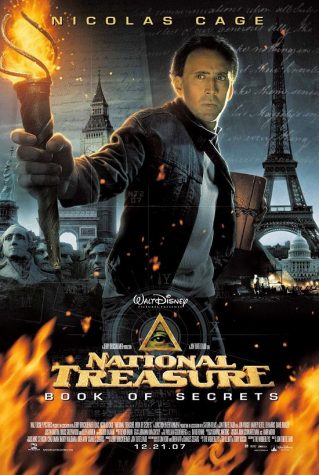
Book of Secrets’ existence itself is evidence of the franchise’s self awareness. Many sequels, such as Rocky V and Indiana Jones and the Kingdom of the Crystal Skull, disappointed fans because they went against what the series was, whereas Book of Secrets stayed true to what the original stood for.
Now, the argument could be made that a sequel is the last thing Hollywood needs. Let me briefly explain why that statement is incorrect. In my eyes there are two main points that prove this wrong. First being that the reason people enjoy sequels such as Mission Impossible: Rogue Nation or Toy Story 3 is because they were good films first, sequels second. Movies don’t have to be a new original idea to be good.
Second, from what I can tell, the average movie goer seems to have forgotten that the definition of an analytically well made film isn’t how well a filmmaker can shove a political agenda down the audience’s throat, but how well a filmmaker can create a memorable story and characters that move the audience emotionally, whether its a sequel or not.
Take a moment to think about why you love your favorite movie. If you’re unsure, maybe my explanation of why a movie doesn’t resonate with me might help. Both Jurassic World: Fallen Kingdom and Transformers: The Last Knight include actions scenes of grandeur, well-known actors, and high budgets, but I feel these movies are a step beyond useless.
Both films are excellent examples that just because the three elements I mentioned are together, doesn’t mean they’ll work. You can’t throw a tire, engine, and a steering wheel on the ground and suddenly have a working car. Just like a car, films have to not only include several elements, but have to make sure they can peacefully coexist.
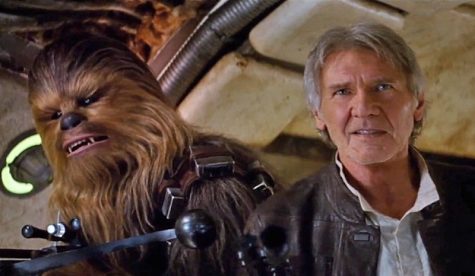
A wonderful example of a film that fails at connecting crucial elements behind filmmaking is Star Wars: The Force Awakens. It was intentionally created to spawn more films. Not to further an overall story, but to fill Scrooge Mcduck’s swimming pool of gold. Aside from the cinematography and visuals, it has nothing to offer, and unfortunately, those aspects are diminished by poorly written characters we don’t care for. It unnecessarily adds politics to a story about Bigfoot and Indiana Jones in space. The main character of Rey, is a perfect example of both bad screenwriting and politics.
I previously wrote about this topic and in that paper I said, “Rey knows everything, even about ships she’s never been on, and can use the force just as well as Luke could over the course of three, 2 hour long movies, in about 5 minutes, and can win a lightsaber duel against a sith who had years of training, again, in about 5 minutes.” This statement still holds true.
For being a film series about political members of history, the National Treasure films have zero politics in them. They’re not masterpieces but they were clearly forged with care and passion. Would a third adventure with Benjamin Gates and company single-handedly save the film industry? No, but I believe that it may be enough to remind screenwriters, producers, and directors how to make films instead of products.

"This is where the fun begins." If you're a big fan of film, TV, or the world of entertainment as a whole, you've come to the right place. This will be...

